Q&A on 501(c) Organizations

IRS Questions and Answers on 501(c) Organizations
[Editor’s note: The questions currently swirling throughout the Treasury Department and the IRS represent a complicated issue whose outcome is not certain as of today. Accordingly, Taxing Subjects will present factual information when it becomes available, but urges it readers to follow they case more closely, if they wish, through the general news media. We will not report on these issues unless or until there is some resolution.]
May 2013
The IRS has received a variety of questions related to the exempt organization issues recently raised. Here are some basics on the issue.
1. What are the issues raised in the recent Treasury Inspector General for Tax Administration (“TIGTA”) report?
The issues relate to the application process for organizations seeking tax-exempt status. Part of the IRS’s responsibility is to review applications of organizations seeking tax-exempt status. Section 501(c)(3) organizations are required to get IRS approval. Others, including section 501(c)(4) organizations, are not required to get IRS approval, but often seek it.
2. Do the issues raised in the recent report relate to audits/ examinations?
No, the issues relate to the approval process of organizations that applied to the IRS for recognition of tax-exempt status.
3. What does the IRS look for in the approval process?
The IRS’s role is to determine whether organization meets the legal requirements for tax-exempt status. One requirement relates to the amount of political campaign intervention (“political activity”) that tax-exempt organizations may engage in. Section 501(c)(3) organizations are prohibited from engaging in any political activity. Other organizations, including section 501(c)(4) organizations, may only engage in a limited amount of political activity.
4. Where does an organization send its application for tax-exemption?
All applications are sent to the IRS Determinations Office in Cincinnati. This office receives approximately 70,000 applications for tax-exempt status of all kinds each year. This includes applications from section 501(c)(3) and section 501(c)(4) organizations. This office, which includes fewer than 200 people working directly on applications, is primarily responsible for working determination applications. Determinations staff may consult with tax law specialists in Washington on how the law applies to their case.
5. Has the IRS seen an increase in the number of applications in which the organization is potentially engaged in political activity?
Yes, the IRS has seen an increase in the number of section 501(c)(4) applications in general. The number of applications has more than doubled in recent years. In addition, the IRS has seen an increase in the number of tax-exempt organization applications in which the organization is potentially engaged in political activity. This includes both section 501(c)(3) and section 501(c)(4) organizations.
6. How did the IRS handle the increase in the number of applications from organizations that appeared to be engaged in political activity?
As done in the past in other situations, such as credit counseling and down payment assistance, the IRS selected cases using identified criteria so that cases needing further review would be worked consistently. This means that cases meeting the selection criteria were centralized and assigned to designated employees developing expertise in the area so that they could be worked in a fair and consistent manner.
7. How are decisions made regarding what cases should be centralized in this area?
Cases are selected for centralization if there are indications in the application that the organization may engage in political campaign intervention, lobbying, or advocacy. This was done to ensure that the legal requirements related to these activities are applied in a fair and consistent manner. The set of criteria was revised at a later point in order to avoid centralizing pure lobbying organizations that did not require follow-on development. During certain periods (August 2010 to July 2011 and January 2012 to June 2012), specific names, terms and policies (such as Tea Party and Patriot) were inappropriately used as criteria in determining which cases should be centralized. However, case selection during these periods was not limited to these criteria.
8. What cases were centralized?
The TIGTA report reflects that 300 cases were centralized. Approximately 70 of those cases included the name Tea Party. The remaining cases included organizations of all political views. The current number of centralized cases is approximately 470.
9. Why did IRS employees look at Tea Party organizations?
IRS employees had seen cases of organizations with the name Tea Party in which political activity was an issue that needed to be reviewed for compliance with legal requirements. Because of the increased inventory of applications, this inappropriate criterion was used as a shortcut to centralize similar cases.
10. Would organizations with Tea Party in the name have been centralized if only appropriate selection criteria had been used?
Yes, in most cases the organization would have been centralized based on the information included in the application. The IRS should have focused on this information instead of using a shortcut.
11. Were centralized cases worked differently depending on which selection criteria was used?
No, centralized cases were not worked differently depending on which selection criteria was used.
12. Did mistakes occur in working the centralized cases?
Yes. Applicants whose cases were centralized unfortunately experienced inappropriate delays and over-expansive information requests in some cases. This was caused by ineffective processes and not related to the selection criteria used for the centralization of a case.
13. Is there any evidence of political bias in selecting cases for centralization or in working those cases?
The TIGTA report included no findings of political bias. In addition, the IRS has found no indication of political bias.
14. How many centralized applications have been approved?
Since centralization, more than 175 applications have been approved to date. As with all applications for tax-exempt status that are approved, the names of organizations whose applications have been approved are publicly available.
Source: Internal Revenue Service



